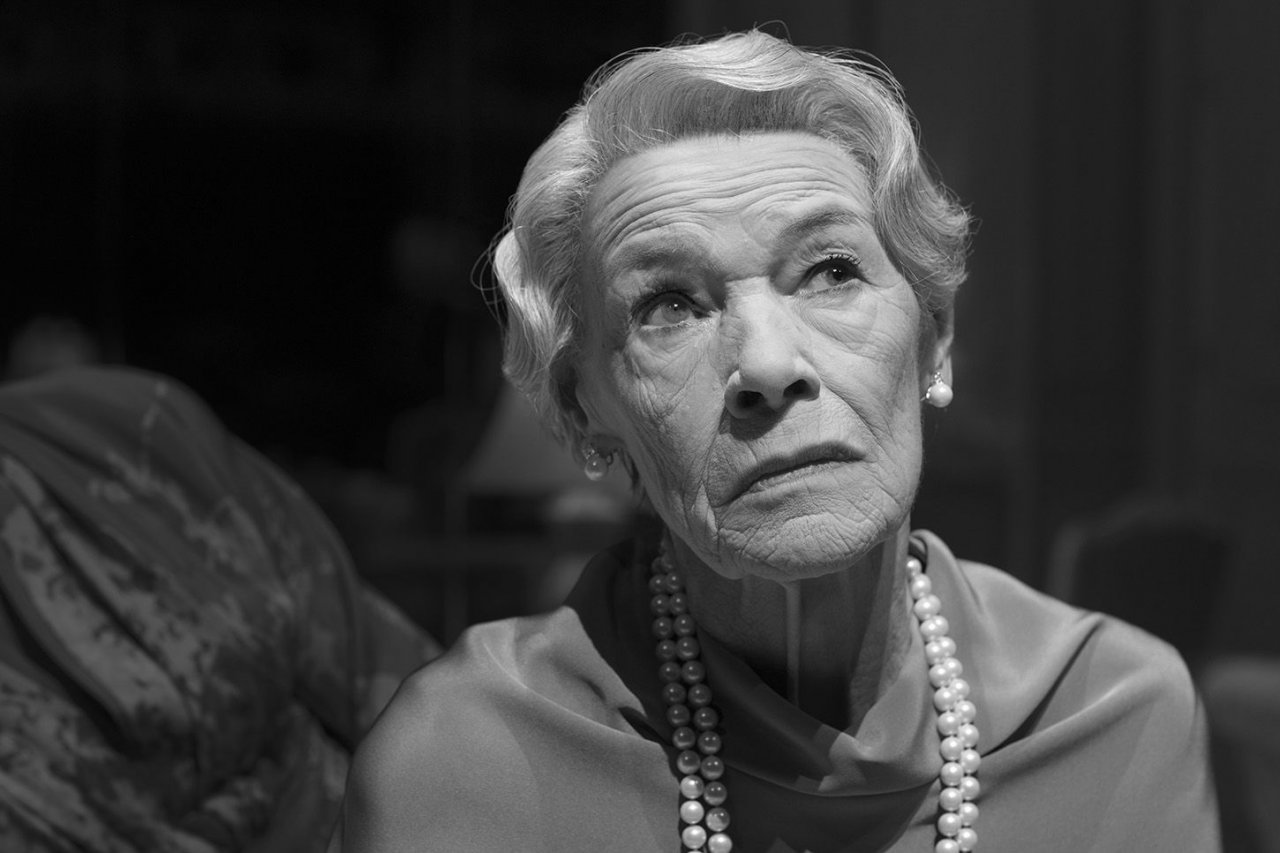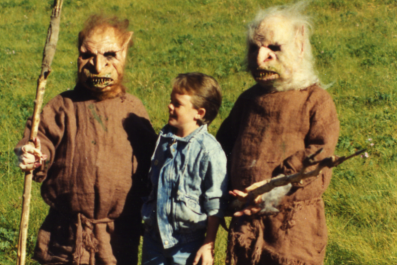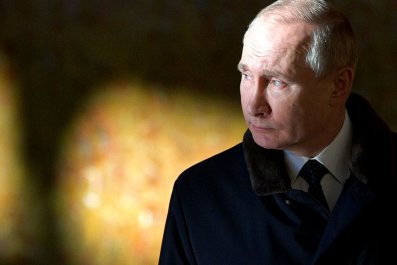After 23 years as a member of the British Parliament, Glenda Jackson returned to acting as only she would: ferociously, as King Lear in an acclaimed 2016 production at London's Old Vic. That she vanquished Shakespeare's mad king without any particular fuss made over the part being played by a woman was unsurprising to a Jackson completist. Consider her first film-starring role, in Ken Russell's Women in Love, an adaptation of D.H. Lawrence's psychosexual novel. What got the most attention when the film debuted was the homoerotic nude wrestling match between its male stars, Alan Bates and Oliver Reed. Watching it now, that moment seems quaint, as does the film. Jackson's Oscar-winning performance, as Gudrun Brangwen, Lawrence's man-killer, on the other hand, remains singularly fierce and brazen. She looks like no movie star before her, and not many after.
Reed, a lusciously handsome Michelangelo statue come to life, famously fought Jackson's casting as his lover, saying she wasn't physically desirable enough. He was the movie's putative star, but it's Jackson—with her splotchy skin and sharply angled features—that you can't take your eyes off. "Flat as a pancake, no makeup, lank, unattractive hair," a female friend said of her in a 1970 Look magazine profile. "But an actress like Glenda makes you believe she's beautiful."
Interviews throughout her career invariably make much ado about her disinterest in the trappings of female stardom: a barefaced, sensible-shoe aesthetic that endures. For a recent New York Times portrait heralding her return to Broadway after three decades, in a revival of Edward Albee's Three Tall Women, she posed in a Tintin sweatshirt. (Somewhere, Frances McDormand was high-fiving her.)
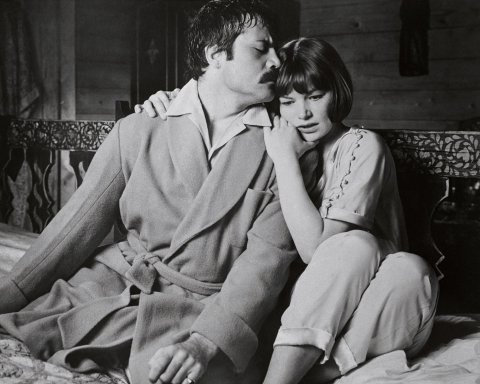
We meet on an unreasonably cold Manhattan morning at a tea salon on New York City's Upper East Side, a few weeks before Three Tall Women's March 29 opening. Jackson is late because she forgot the appointment, and she is mortified. "Old age," says the 81-year-old, with a roll of her eyes and a Brit's tip of the chin, the multipurpose dismissal of anything regrettable. After she orders a pot of Earl Grey tea, I mention that her performance in Women in Love was a watershed moment for many young women in 1969, myself included. She looks stunned. "Really? Why?" Because in a single performance, I say, Jackson defied every female stereotype. She listens intently, looking vaguely flummoxed. "Good God," Jackson says finally.
Stereotypes and gender barriers continue to dissolve in her hands, yet despite her award-winning turn in Lear, she isn't optimistic about more theater work. "I think parts for women of my years are well and truly finished," she said in a 2016 interview with The Guardian.
And yet, here is Three Tall Women. Albee's Pulitzer Prize–winning piece is a veiled portrait of his domineering mother, who preferred horses to her adopted son. She is played in three stages of her life by Jackson (at 92, approaching senility with rip-snorting rage), Laurie Metcalf (a cynical 52) and Alison Pill (26 and full of hope). In Metcalf, Jackson has found her match in dishing out contempt with acidic eloquence. They also share a gift for facial improvisation, riffing as others might with dialogue, resulting in unscripted moments of hilarity. "Oh, she makes me laugh," says Jackson. "Is there anything she can't do?"
This isn't Jackson's first Albee role. She played Martha in a 1989 revival of Who's Afraid of Virginia Woolf? in Los Angeles—a production directed by the playwright. (John Lithgow played George.) "We didn't get on," she says of Albee. "He was so closed off." And yet he wrote female characters of irresistible complexity. What is revealed in the course of both plays is that the eviscerating verbal missiles these women deploy shield deep wounds; they are bullies, yes, but also victims.
"Albee was quite categoric that Three Tall Women is not a revenge play [against his mother]. I think it is, but there you go," says Jackson. "The really interesting thing," she adds, "is that right at the end of his life, Albee wrote—and I'm paraphrasing here—that he'd never met anyone who liked his mother in life, but he'd never met anyone who didn't like her in the play. 'What have I done?' he said."
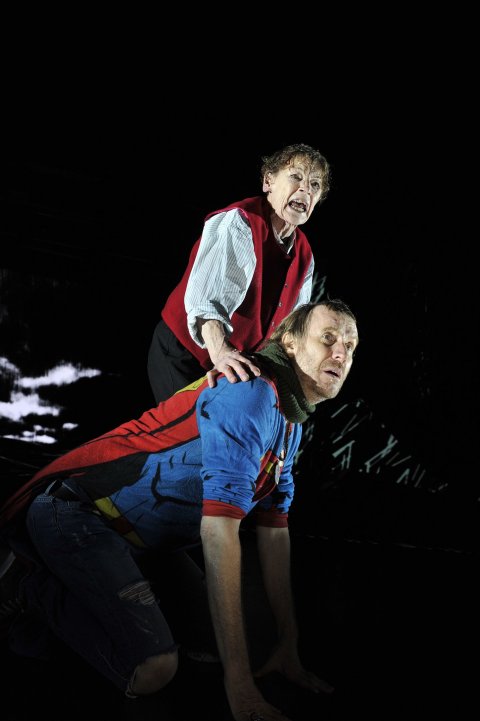
It would be a mistake to assume that Jackson took this part, or any other, because of some grand career plan. (When I mention the current "branding" trend, she nearly chokes on her tea.) "I'm a jobbing actor. It's what comes through the door, if anything comes through the door." She did not, for example, take the part of Gudrun in Women in Love because she was an uncommonly strong female character. "Come on!" she nearly barks. "I took it because it was a job I was offered."
Back then, Jackson had a young son, Dan, with husband Roy Hodges (they divorced, after 18 years, in 1976). She was a rising star in London after her 1963 turn as Charlotte Corday in Peter Brook's groundbreaking production of Marat/Sade, but actors weren't paid much in England at the time. The financial uptick only began with her Academy Award win for Women in Love. In 1971, she played Queen Elizabeth I in the BBC's Elizabeth R—a definitive portrayal that won her two Emmy awards. John Schlesinger's superb Sunday Bloody Sunday came out the same year. The film, about a young, bisexual man shared by a male doctor (Peter Finch) and a divorced woman (Jackson), remains startlingly fresh. "Best bloody script I ever read," says Jackson.
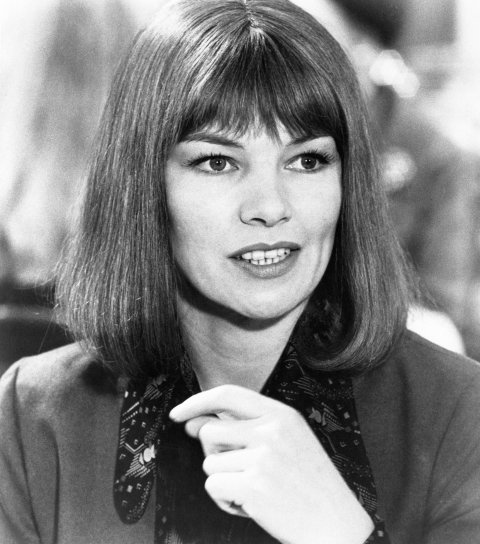
She won her second Academy Award in 1973, for the romantic comedy A Touch of Class, co-starring George Segal. Acting in Hollywood offered rewards well beyond a trailer bigger than her flat back in London. "When I began in the theater," she says, "it was fashionable for English actors to pretend that the least important thing in their lives was a performance. 'Oh, it's just a play, darling.' And here was George, for whom acting was life and death, and he was just amazing to work with. For me, that was just glorious."
Glorious, too, was meeting one of her two childhood movie idols, Bette Davis. The other was Joan Crawford, and those infatuations make sense. You can say of Jackson, just as she once said of them, "They had a superb sense of arrogance. When they walked, they ground the poor earth beneath their heels." But Jackson won't hear of a comparison. "I was never a star," she insists. "I mean, Davis was a star. That meant something." Still, she adds, tough women on screen, and off, "always got their comeuppance, didn't they?"
Strong female characters are no longer routinely punished, and that's an improvement. But, says Jackson, "I find it very curious that given the advances in women's lives and experiences and the capacity to actually speak up, that contemporary dramatists still don't find women interesting. Rarely is a woman the dramatic engine of anything."
JACKSON GREW UP IN WEST ENGLAND, the daughter of a bricklayer and a cleaning woman and the eldest of four sisters. "I once accused my mother of giving me an overdeveloped sense of responsibility too early," she says, "and she looked at me as if I was completely mad."
That sense of responsibility, as well as her unwavering socialism, eventually pushed her out of acting and into public service. In 1992, she was elected to the House of Commons as the Labour candidate for London's Highgate and Hampstead, becoming a regular critic of Prime Minister Tony Blair. For over two decades, she didn't give acting a thought. Perhaps it was because Parliament is its own odd stage show; take a look at her 2013 speech on the occasion of Margaret Thatcher's death. As political opponents mercilessly hector her, she eloquently demolishes Thatcherism for inflicting the "most heinous social, economic and spiritual damage upon this country." As for Thatcher, she said, "A woman? Not on my terms."
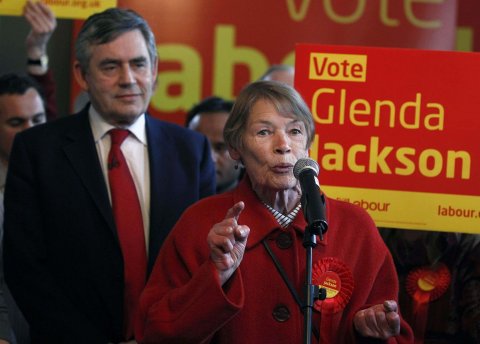
Jackson says she had no experience of sexism in Hollywood, but "in Parliament it was very obvious." That's improved with more women entering politics and younger men actively parenting. "But we still avoid what is the basis of it all, that women are always regarded as a representative of their gender. If you're successful, you're the exception to the rule. If you're a failure, well, you're just a woman. And that is throughout the whole of society. Two women die every week in my country at the hands of their partner, usually male," she says. "That isn't front-page news, like sexism in Hollywood, but it should be. And we certainly haven't changed the law with regard to domestic violence."
Having lived through one liberation movement, Jackson is circumspect about #MeToo and Time's Up. "The world has been the way it is for ever so long. You cannot transform it overnight," she says. "It's tiny, tiny steps. Yes, there have been changes, but we kid ourselves if we think equality is here.
"What is forgotten," she continues, "is that women's issues are linked to so many other things that are happening in the world. My country is leaving Europe, for God's sake! What's happening in your country, what's happening in Europe—the shifts to the right are extremely concerning."
For the moment, Jackson can distract herself with Three Tall Women. When the limited run ends on June 24, she'll return to her basement flat in the London townhouse of her son, a political columnist. There, she isn't an Oscar-winning actress ending her nights with standing ovations, or a former member of Parliament, but the "rather boring" granny of an 11-year-old who mocks her technological ineptitude. "I once had to temporarily use a smartphone," says Jackson with a laugh. "My grandson gave up on me. 'I've told you how to do this three times. Stupid granny!'"



